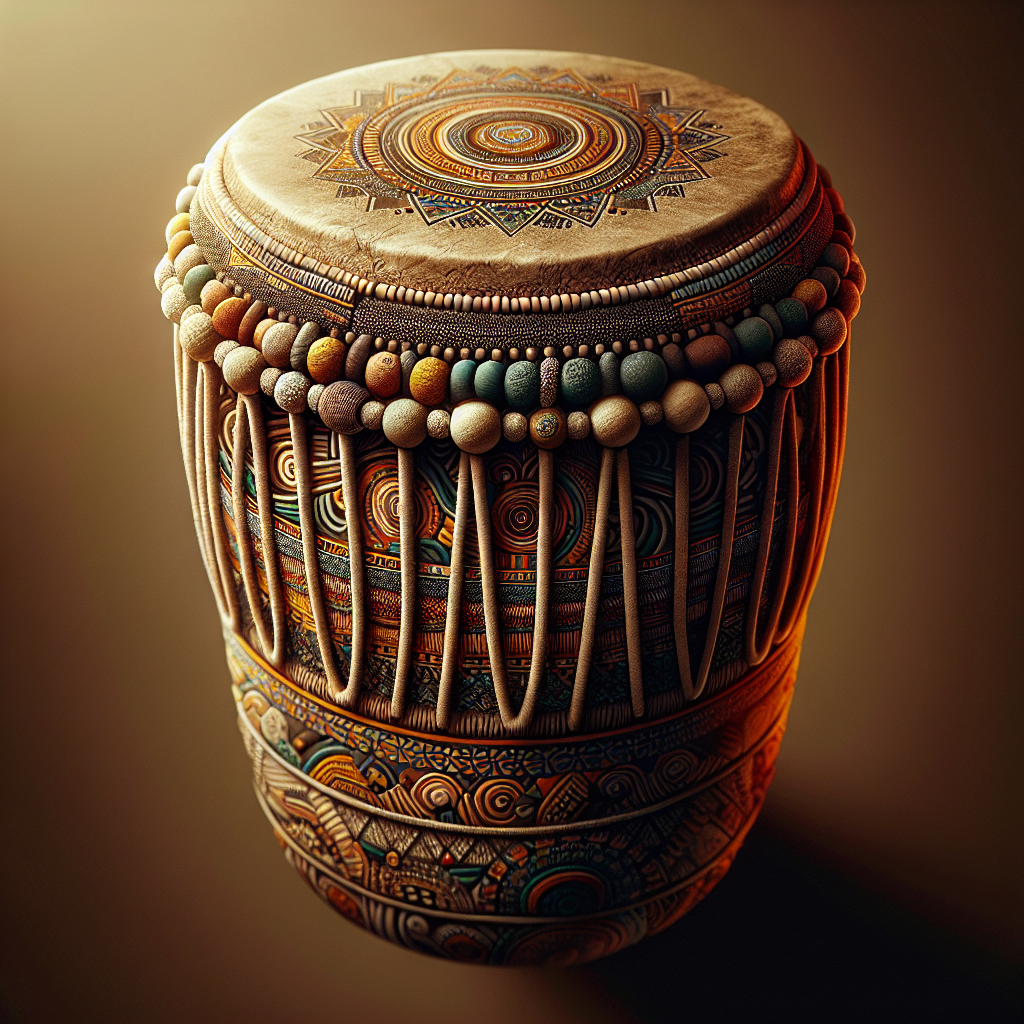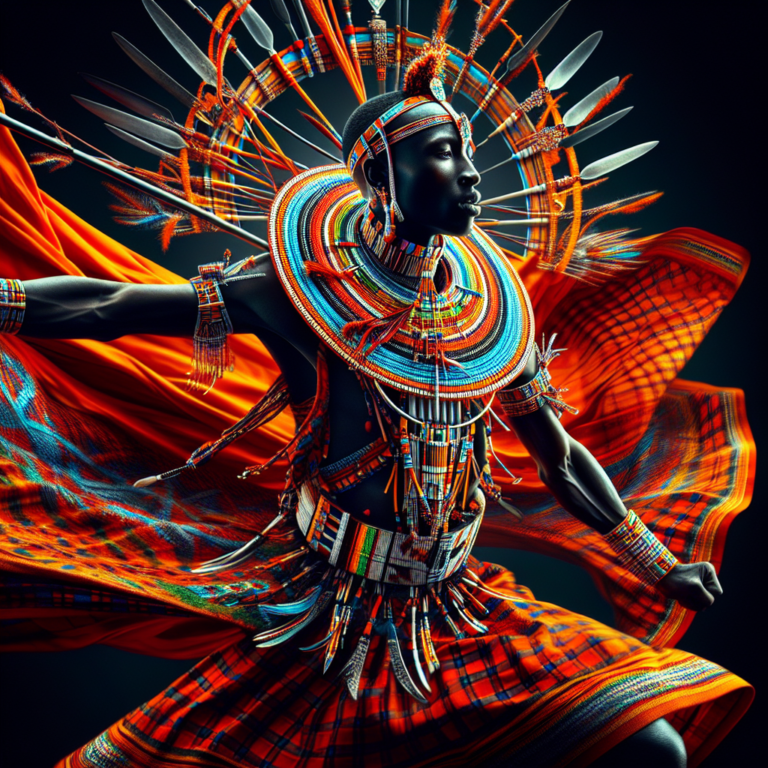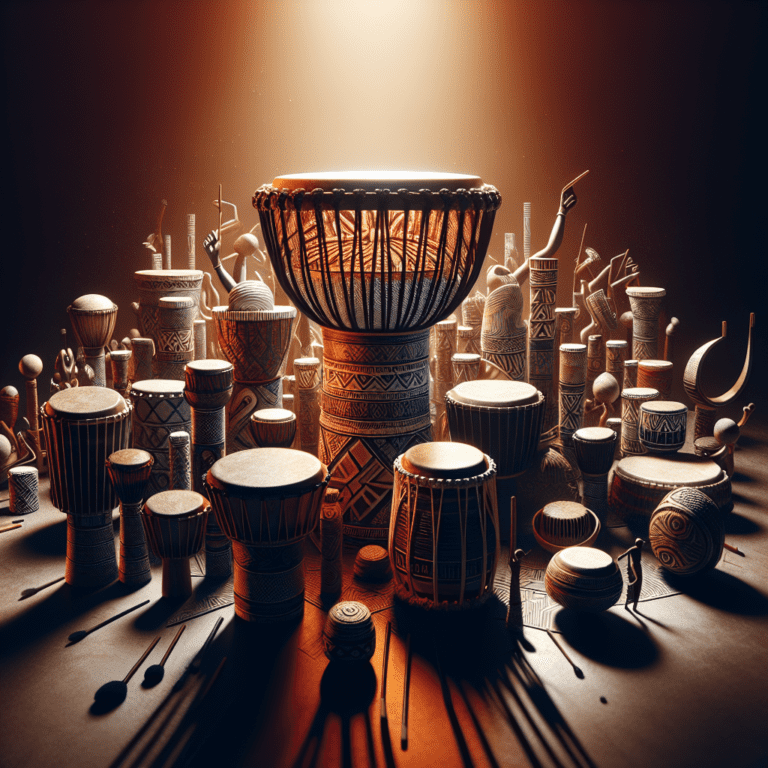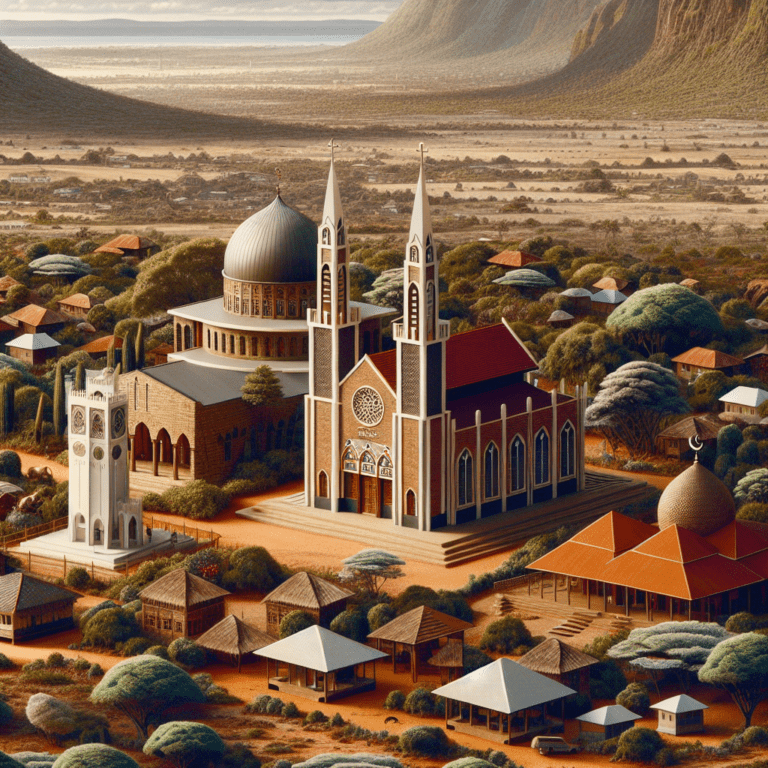What Is The Role Of Music In Kenyan Culture?
Music plays a significant role in Kenyan culture, serving as a powerful means of expression, preservation of traditions, and community bonding. From the rhythmic beats of traditional African drums to the melodic harmonies of contemporary genres, music in Kenya transcends boundaries and connects people from diverse backgrounds. It serves as a vibrant tool for storytelling, conveying history, emotions, and values. Whether it’s celebrating milestones, healing, or igniting social change, the role of music in Kenyan culture is undeniable and beautifully woven into the fabric of everyday life. Music holds a significant role in Kenyan culture, embodying the rich traditions, history, and diverse identities of the nation. From ancient times to the present day, music has played a vital role in various aspects of Kenyan society, serving as a form of communication, a source of inspiration, a tool for cultural preservation, and even as an economic driver. Let’s explore the multifaceted role of music in Kenyan culture.
Traditional Music in Kenyan Culture
Instruments and Rhythms
Traditional Kenyan music is characterized by a vibrant fusion of distinct rhythms, melodies, and instruments. The harmonious blend of drums, such as the ndungu and ngoma, coupled with the melodious sounds of stringed instruments like the nyatiti and orutu, create a captivating auditory experience. These instruments and rhythms not only embody the cultural identity of different Kenyan communities but also serve as a means to connect with their ancestors and traditions.
Ceremonies and Rituals
In Kenyan culture, music holds immense significance during ceremonies and rituals. Whether it be weddings, initiation ceremonies, or harvest festivals, music plays a central role in these events. The rhythmic beats and enchanting melodies accompany each ritualistic step, elevating the ambiance and adding a sense of sacredness. Traditional songs and dances passed down through generations are performed to honor ancestors, invoke blessings, and celebrate significant milestones.
Storytelling and Oral History
Music serves as an integral part of storytelling and oral history preservation in Kenya. Elders and griots, known as ‘wazee’ in Swahili, utilize songs and chants to pass down knowledge, folktales, and historical accounts from one generation to another. These musical narratives preserve the country’s cultural heritage, allowing individuals to connect with their roots and maintain a sense of identity. Through music, the stories of Kenya’s past are vividly brought to life, ensuring that the traditions and wisdom of the ancestors are not forgotten.
Music as a Form of Communication
Expressing Emotions
Music serves as a universal language for expressing emotions, and Kenyan music is no exception. Whether it’s joy, grief, love, or sorrow, music provides a channel for individuals to convey and process their emotions. In times of celebration, like weddings and birthdays, lively songs and energetic dances express the overwhelming happiness and excitement. On the other hand, during funerals and mourning periods, mournful melodies and solemn hymns help to console and grieve collectively.
Conveying Social Messages
Music in Kenya has long been an effective medium for conveying social messages and advocating for various causes. It provides a platform for artists and musicians to address societal issues such as political unrest, corruption, poverty, and social injustice. Through powerful lyrics and captivating melodies, music ignites conversations, raises awareness, and mobilizes communities towards positive change.
Promoting Unity and Identity
Music plays a vital role in fostering unity and a sense of belonging among Kenyan communities. It brings people together, transcending boundaries of tribe, language, and region. Traditional community choirs and dance groups serve as platforms for collaborative musical expression, where individuals from various backgrounds unite to showcase their cultural diversity. This collective celebration of diversity strengthens the national identity, promoting tolerance, mutual respect, and peaceful coexistence.
Music in Social Gatherings
Dances and Celebrations
In Kenyan society, music and dance are interwoven, forming an inseparable bond. Social gatherings, be it traditional festivals or modern celebrations, are incomplete without the energetic and rhythmic movements of dance. From the vibrant ‘Lipa Kodi’ to the acrobatic ‘Isikuti’ dance, each region in Kenya boasts its unique dance forms. These dances not only entertain but also serve as a means of cultural expression, allowing individuals to embrace their heritage while enjoying the company of others.
Weddings and Birthdays
During weddings and birthdays, music takes center stage, setting the mood and creating a festive atmosphere. Traditional wedding ceremonies often feature live bands, playing melodious tunes and romantic ballads. The rhythmic beats and joyous melodies encourage guests to join in dancing and celebrate the union of two individuals. Similarly, birthdays are marked with lively songs and cheerful rhythms, with friends and family coming together to commemorate another year of life.
Funerals and Mourning
While it may seem paradoxical, music also plays a significant role during funerals and mourning periods in Kenyan culture. The mournful dirges and elegiac chants performed during these times provide solace and support to grieving families. They serve as a form of catharsis, allowing individuals to express their emotions and honor the deceased through music. Funerals in Kenya are often seen as a celebration of life, and music plays a crucial role in commemorating the departed soul.
Music in Education and Religious Practices
Schools and Educational Institutions
Music has a prominent place in Kenyan educational institutions, from primary schools to universities. It is taught as part of the curriculum, enabling students to learn about their cultural heritage and develop musical skills. School choirs and orchestras offer platforms for students to showcase their talents while promoting teamwork, discipline, and self-expression. By incorporating music education, Kenya nurtures the next generation’s appreciation for their rich musical traditions.
Religious Ceremonies and Worship
In Kenya, music is deeply intertwined with religious practices, providing a spiritual connection between worshippers and the divine. Christian gospel choirs, Islamic chants, and traditional hymns are performed during religious ceremonies, heightening the spiritual experience. Music acts as a conduit for prayer, praise, and worship, leading individuals toward a deeper sense of faith and establishing a sense of community among believers.
Community Choirs and Dance Groups
Beyond schools and religious institutions, community choirs and dance groups hold a significant role in promoting musical expression and cultural identity. These groups bring together individuals of all ages and backgrounds who share a passion for music and dance. They engage in collaborative rehearsals, performances, and community outreach programs, enriching the social fabric of Kenyan communities and preserving traditional art forms.
Music as a Source of Inspiration and Reflection
Soothing and Relaxing
Music in Kenya possesses the power to soothe the soul and provide a calming effect in times of stress, anxiety, or exhaustion. Traditional lullabies, melodic instrumentals, and gentle harmonies create a serene environment, offering respite from the demands of everyday life. Listening to soothing melodies or participating in calming musical activities promotes mental well-being, relaxation, and rejuvenation.
Motivating and Encouraging
Music has the incredible ability to motivate and uplift individuals, inspiring them to overcome obstacles and pursue their dreams. Inspirational lyrics, upbeat tunes, and dynamic rhythms in Kenyan music evoke a sense of resilience and determination. Whether it’s the encouraging beats of Benga or the empowering messages of gospel music, music instills hope, self-belief, and a drive for personal growth.
Reflecting on Kenya’s History and Struggles
Music in Kenya serves as a medium through which citizens are reminded of their country’s history, struggles, and triumphs. Musicians often incorporate historical events, societal issues, and tales of resilience into their songs, creating a form of musical storytelling. Through these narratives, communities gain a deeper understanding of their collective heritage, fostering a sense of patriotism and social consciousness.
The Role of Music in the Entertainment Industry
Music Festivals and Concerts
The entertainment industry in Kenya thrives on music festivals and concerts, attracting both local and international audiences. Events like the Safaricom Jazz Festival, Koroga Festival, and Groove Awards showcase the nation’s vibrant music scene and provide a platform for artists to showcase their talents. These festivals not only contribute to the economy but also promote cultural exchange, creativity, and national pride.
Popular Artists and Bands
Kenya boasts a flourishing music industry with numerous popular artists and bands that have gained national and international recognition. Artists like Sauti Sol, Nyashinski, and Mercy Masika have successfully blended contemporary genres like Afro-pop, hip-hop, and R&B while maintaining their Kenyan identity. These artists serve as cultural ambassadors, representing Kenya’s musical prowess on the global stage.
Music and Dance Competitions
Music competitions and talent shows, such as Tusker Project Fame and Groove Awards, play a pivotal role in discovering and nurturing young talent in Kenya. These platforms provide aspiring musicians and dancers with the opportunity to showcase their skills, gain exposure, and eventually break into the industry. Such competitions not only contribute to the growth of the entertainment sector but also inspire the younger generation to pursue their musical dreams.
Music as a Tool for Cultural Preservation
Preserving Traditional Beats and Rhythms
Music serves as a powerful tool for cultural preservation, safeguarding traditional beats and rhythms that have been passed down through generations. Organizations such as the Kenya National Cultural Centre and various cultural festivals actively work towards identifying, documenting, and promoting indigenous musical forms. By preserving these traditional elements, Kenyan music retains its authenticity and ensures the continuity of cultural heritage.
Reviving Endangered Songs and Dances
Some traditional Kenyan songs and dances face the risk of becoming extinct with the passage of time. However, dedicated individuals and organizations aim to revive these endangered art forms. By researching, reconnecting with the older generation, and revitalizing forgotten techniques, these efforts breathe new life into ancient songs and dances, ensuring their preservation for future generations.
Documenting Cultural Heritage through Music
Music serves as an invaluable tool for documenting and archiving Kenyan cultural heritage. Ethnomusicologists and researchers are continually studying traditional melodies, musical structures, and performance styles to document and preserve this unique heritage. Through audio recordings, transcriptions, and digital archiving, Kenya’s cultural legacy is curated and made accessible to future generations, enabling them to understand and cherish their musical heritage.
The Influence of Western Music on Kenyan Culture
Adoption and Fusion of Western Genres
The influence of Western music on Kenyan culture is undeniable, with genres like hip-hop, reggae, and R&B making their way into the country’s musical landscape. Kenyan artists have skillfully blended these Western influences with their local sound, creating captivating musical fusions. This cross-pollination of styles not only keeps Kenyan music dynamic and evolving but also fosters cultural exchange and diversity.
Impact on Youth and Pop Culture
Western music has had a significant impact on Kenyan youth and pop culture. The rise of urban music genres like gengetone, which incorporates elements of hip-hop and dancehall, has gained massive popularity among young Kenyans. Western fashion trends, dance moves, and even language are being embraced by the youth, shaping their cultural identity and redefining Kenyan popular culture.
Challenges and Criticisms
While the influence of Western music has created new opportunities and expanded the horizons of Kenyan musicians, it also faces criticism from traditionalists. Some argue that too much reliance on Western genres may erode traditional music forms and dilute Kenya’s cultural identity. Striking a balance between embracing Western influences and preserving indigenous musical traditions remains a challenge for the Kenyan music industry.
The Role of Music in Economic Development
Tourism and Cultural Exchange
Kenyan music has become a significant attraction for tourists, with music festivals and cultural performances drawing visitors from around the world. Through music, tourists engage with the local culture, gaining a deeper appreciation for Kenya’s heritage. This cultural exchange contributes to the country’s economic development, as music tourism boosts revenue in sectors like hospitality, travel, and local businesses.
Music Production and Business Opportunities
The music industry in Kenya offers various business opportunities, stimulating economic growth and employment. From music production studios to event management companies, entrepreneurship within the industry provides avenues for artists, producers, managers, and other professionals to pursue their passion. The growth of digital music platforms has further opened doors for independent artists to distribute their music and generate income.
Exporting Kenyan Music to the World
Kenyan music has transcended national boundaries, captivating audiences across Africa and beyond. Artists like Jaguar, Sauti Sol, and Eric Wainaina have gained international recognition, exporting Kenyan music to global stages. This exposure not only brings pride to the nation but also creates business opportunities for artists, as their music is streamed, performed, and licensed internationally.
Music’s Impact on Health and Well-being
Therapeutic and Healing Effects
Music has a profound impact on health and well-being, offering therapeutic and healing effects. Research shows that listening to music can reduce stress, alleviate anxiety, and promote relaxation. In Kenya, traditional healing practices often incorporate music and dance as a means to promote physical, mental, and emotional well-being. The rhythmic vibrations, communal singing, and repetitive melodies induce a state of deep relaxation and promote holistic healing.
Promoting Mental and Emotional Well-being
In addition to its therapeutic benefits, music also plays a crucial role in promoting mental and emotional well-being in Kenya. Music has the power to uplift spirits, improve mood, and provide an outlet for emotional expression. Kenyan artists often infuse their songs with empowering messages of hope, resilience, and self-acceptance, inspiring listeners to overcome challenges and maintain positive mental health.
Empowering and Inspiring Individuals
Music in Kenya serves as a source of empowerment and inspiration, enabling individuals to rise above their circumstances and achieve their dreams. Artists share their personal narratives, often highlighting stories of triumph over adversity, social inequality, and hardship. Through these stories, music inspires individuals to believe in their own potential, fostering personal growth, determination, and a pursuit of excellence.
In conclusion, music holds an integral place in Kenyan culture, impacting various aspects of society. Whether it’s expressing emotions, uniting communities, preserving cultural heritage, or fueling economic growth, music continues to weave its melodious threads through the fabric of Kenyan society. As the nation embraces both traditional roots and Western influences, the Kenyan music industry navigates a constantly evolving landscape, offering a platform for artists to express their creativity, connect with audiences, and contribute to the vibrant tapestry of Kenyan culture. So next time you listen to Kenyan music, immerse yourself in the rich tapestry of melodies, rhythms, and narratives, and let the vibrant sounds of Kenya take you on a transformative journey.







